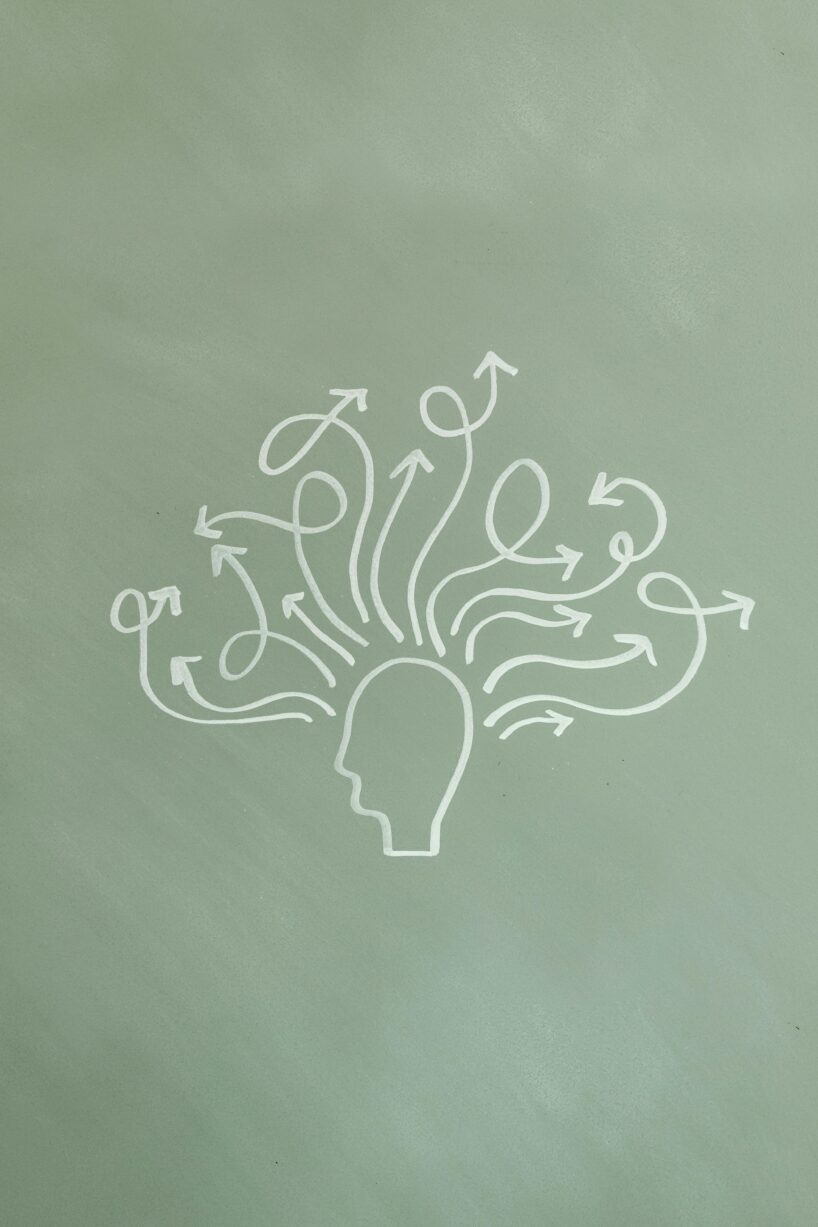May is Mental Health Awareness Month, which means you’re probably seeing a lot of green ribbons, gentle reminders to “check in with yourself,” and posts telling you that mental health matters. And while all of that is true, it can sometimes feel… distant. Like it’s meant for someone else. Someone struggling more, someone in crisis, someone who’s not holding it together as well as you are.
But mental health isn’t just about crisis moments. It shows up in the quiet stuff—the weird, small, everyday ways your brain waves a tiny flag and says, “Hey, I’m kind of tired over here.”
Mental health issues often show up like avoiding that one email for three days straight even though it would take two minutes to reply. Or putting your laundry in the dryer, then hitting “refresh” four times because you don’t have the energy to fold it. Or Googling “why am I like this” while doing absolutely nothing to change your situation.
And sure, sometimes these things are just… life. But other times, they’re gentle nudges from your brain saying, I’m a little overwhelmed over here.
Anxiety doesn’t always mean panic attacks. Depression doesn’t always mean staying in bed all day. Burnout doesn’t always mean you hate your job—it might just mean your favorite hobby feels like a chore now.
These quieter signs often get brushed off because they don’t “look serious enough.” But the truth is, mental health lives in the small stuff: your sleep, your energy levels, your focus and patience, your texts you haven’t answered in a week.
A lot of us have been taught to only pay attention to these types of things when they get bad or we start feeling overwhelmingly off track. But what if we started listening earlier?
There’s a big difference between being lazy and being mentally drained. One comes from simply not wanting to do something. The other comes from feeling like you can’t, or you truly don’t have the energy, even if you want to. Being mentally exhausted does NOT mean you are being lazy, it means you need a little extra self-care in that moment.
If you’ve ever stared at a full sink and thought, “Nope,” and then judged yourself for it—you’re not alone. Mental fatigue can feel invisible, but it’s real. It steals your motivation, your focus, and sometimes your ability to care about things you usually care about.
You don’t need to wait for a breakdown to take your mental health seriously. You’re allowed to notice the whispers, not just the alarms.
So what can you actually do about it?
Let’s be honest—most mental health advice feels like too much when you’re already overwhelmed. So here’s a not-so-overwhelming list of small, doable things that can make a big difference:
Move your body in any way that doesn’t feel like punishment. This doesn’t mean hitting the gym for an hour. It might mean stretching in bed, walking around the block with music, or dancing to one song in your kitchen. Movement helps your brain reset—even in micro-doses.
Reach out, even if you don’t know what to say. You don’t need a crisis to check in with someone. Try a low-pressure text like “Today’s been a weird one. Can we talk?”
Make a “low-effort wins” list. This is your go-to for days when everything feels like too much. Think: brushing your teeth, drinking water, making a healthy meal, putting on clean clothes and freshening up. Checking one thing off this list is a win.
Create a “safe mode” version of your routine. When your brain’s in survival mode, give yourself permission to scale things back. What does the gentlest version of today look like? Maybe it’s doing your skincare routine but skipping makeup. Or doing half your to-do list instead of all of it.
Build in comfort on purpose. Watch the show you’ve seen a million times. Eat something nostalgic. Light a candle that makes you feel like your home is a sanctuary, not just a place you crash. These things aren’t extra—they’re regulation tools.
Also: hydrate. Yes, it’s the oldest advice in the book. But no one regrets drinking water.
If you’re waiting for a sign that your mental health “counts”—this is it.
The little things are not so little. If your brain’s been waving tiny red flags disguised as skipped meals, random irritability, or an overwhelming urge to disappear for a day, you’re not broken. You’re human.
And that’s reason enough to start paying attention—with care, not judgment.

